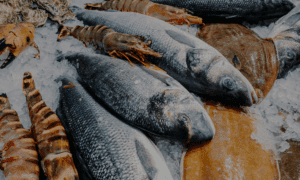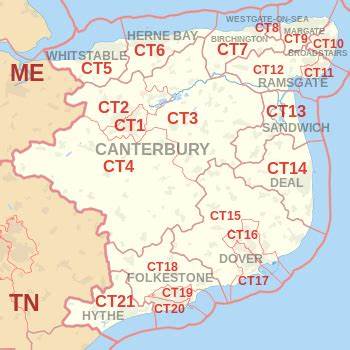
Looking for sustainable seafood? We’ve got you
We discover which seafood is most sustainable and discuss the most sustainable seafood options in the UK in 2021. Do you want to know which
Looking for sustainable seafood? We’ve got you
Do you want to know which seafood is most sustainable? According to FishForward, overfishing is one of the most significant threats to the health of seas and its inhabitants. Illegal and unregulated fishing accounts for up to 28% of fishing worldwide, while 30% of fish stocks commercially fished are now classified as ‘over-fished.’
Our consumption is irreparably damaging the ocean’s delicate ecosystems, dilapidating fish stocks, and making life extremely difficult for the millions of coastal communities worldwide that rely on fish for their primary source of protein.
If we all don’t take some responsibility and do something about it, our oceans could be empty before the century is out.
One thing we can all do is think carefully about the seafood that we consume.
According to current research, species like UK cod, European eel, Wild Atlantic salmon, and Wild Atlantic halibut are amongst the least sustainable seafood.
To help you make more conscientious choices when it comes to selecting the seafood to feed you and your family, we’ve put together a list of the five most sustainable fish species on the UK market at present, and explain why they’re a good choice.
In the 1990s, a recovery plan was implemented to replenish the UK population of Cornish hake. As the first UK fishery to receive MCS certification, the Cornish Hake Fishery has introduced a range of innovative measures to ensure that hake can be enjoyed sustainably.
Fishers use a larger mesh size than required by law, which allows smaller and younger hake to swim free. What’s more, all fisher boats are fitted with ‘pingers’ which deter dolphins and other large mammals from entering the nets as bycatch.
Thanks to these innovations and concerted efforts to allow the population to heal, Cornish hake is one of the most sustainable seafood options for UK consumers.
Click here to shop our hake now.
Mackerel in itself isn’t necessarily sustainable, and it was even added to the MCS red list in 2019 due to dwindling stock levels. But mackerel caught using a hand-line is one of the most sustainable fishing processes in use today.
It’s an extremely low impact fishing method conducted by small boats, usually less than ten metres in length. Line fishing essentially eliminates the issue of bycatch and ensures that only the targeted fish is pulled from the ocean.
So, if you’re keen to add mackerel to your weekly shop, be sure to ask your fishmonger about the fishing method used to catch it before agreeing to a purchase.
Click here to shop our mackerel now.
Mussels have developed quite the reputation in recent times as one of the most ethical and sustainable seafood options on the planet. The fact that they’re bivalves means they don’t require feeding, and they filter their nutrients from the water, which cleans up to 50 gallons of seawater per day, improving the ecosystem for other marine life.
Mussels tend to be cultivated either via a rope or on the seabed. Offshore Shellfish is currently in the process of cultivating the UK’s largest rope cultivated mussel farm in Lyme, Bay, Devon, which will be transformative to the coastal waters of the region and boost mussel populations.
Look for mussels that have been rope cultivated and farmed instead of dredged from the seabed if you can. But generally speaking, mussels are an excellent option to add to your weekly meal plan and could replace other shellfish like certain types of prawn that are much less sustainable.
Click here to shop our mussels now.
While salmon is one of the most sought-after fish in the UK, the issues around its feed and the pollution caused by its waste, means that it’s much more sustainable and better for its ecosystems to look for a viable alternative.
UK rainbow trout is one such alternative to salmon, either Wild Atlantic or farmed. Rainbow trout are still farmed, but less intensively so, as they’re confined to ponds instead of open-net pens and have a considerably lower environmental impact on other fish. According to the MCS, when opting for trout, you should go for rainbow trout that has been farmed in freshwater.
The British Trout Association informs us that around 17,000 tonnes of rainbow trout are farmed in the UK each year, meaning you have ample opportunity to switch to it to feed your family sustainably.
Click here to shop our rainbow trout now.
Prawns are one of the most desired seafood options in the UK, with some of the nation’s favourite dishes including one type of prawn variety or another. Be it a delicious prawn mayo sarnie or a king prawn curry; prawns are extremely popular in the British culinary scene. But are they sustainable?
MCS certified prawns are caught in cold water, usually in the seas between Norway and Canada. The West Greenland coldwater prawn, for instance, is MCS certified and caught using sustainable methods, where the typical issues associated with prawn bycatch are lessened.
It’s best to avoid tiger and jumbo prawns typically farmed in warmer waters in south-east Asia. You can generally distinguish between sustainable and non-sustainable prawns by their size, as the former is much smaller, usually no bigger than a twenty pence piece. You can ask your fishmonger for advice on which varieties of prawns are sustainable.
Click here to shop our prawns now.
We all have a responsibility to opt for more sustainable seafood. Overfishing is extremely damaging to the health of fish stocks around the world and is a practice that needs to be avoided to ensure the maintenance of healthy ocean ecosystems in the future.
If you have any questions about the fish we have in stock then please get in touch with Darren and the team.
Read our most recent posts

We discover which seafood is most sustainable and discuss the most sustainable seafood options in the UK in 2021. Do you want to know which
Get our latest offers, discounts and news straight to your mailbox. You can unsubscribe at any time (but you won’t want to)
